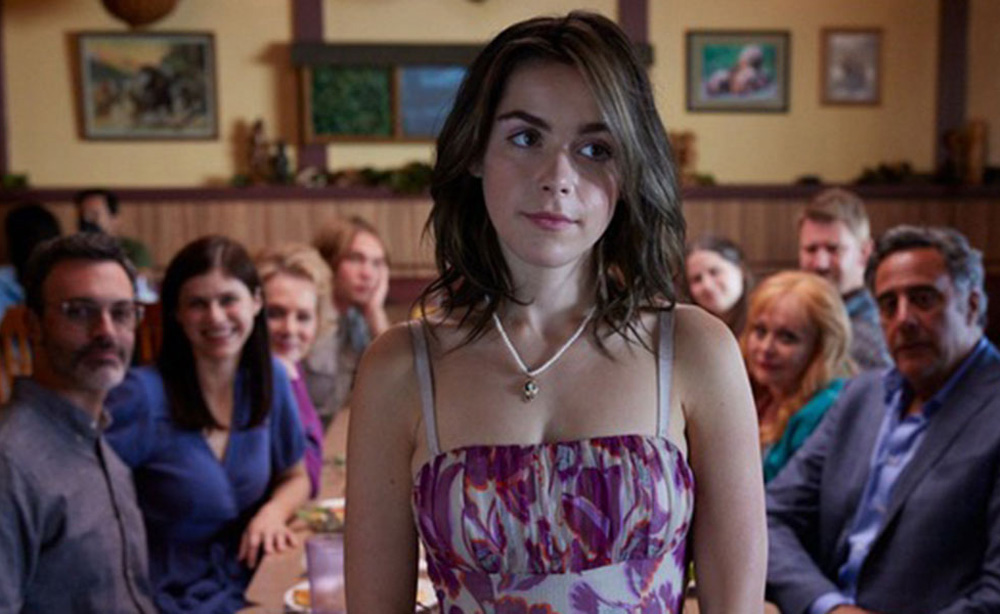By the time Bea (Kiernan Shipka) is asked out to prom by her boyfriend Warren (Charlie Plummer) in “Wildflower,” it is bound to sound more pedestrian than it should be, hardly seeming like a momentous occasion when she was taught to drive at 10 and contributes heavily to her family’s net income with odd jobs after school when her parents (Dash Mihok and Samantha Hyde), both neurodivergent, are only employed part-time. Her aunt (Alexandra Daddario) and uncle (Reid Ewing) have afforded her tuition at a private school, but not happiness when she’s the least fortunate there and beyond a distaste for feeling inferior, a dance seems so much less important than anything else she has going on in her life, which makes it frustrating as hell when she finds herself lying comatose in Matt Smukler’s winning dramedy, recalling various rites of passage that she only now can fully comprehend when time has stopped long enough for her to feel like she doesn’t have to carry the weight of the world on her shoulders.
Brilliantly structured with a charming lead turn from Shipka, “Wildflower” bring up the fact upfront it’s inspired by true events, but even without that introduction, the authenticity is a ongoing illuminating force in the film from the tactile details such as the lived-in quality of the film’s production design, where houses are piled high with the ephemera of days gone by, to less obvious but no less thoughtful touches throughout Bea’s family interactions with one another. Having the truth of the matter would seem to pull the film away from the overly quirky coming-of-age chronicle it could be and leads to genuinely inspired storytelling in every instance, from Bea’s voiceover to dispute the way her family characterizes who she is and what happened to her to a social services investigator (Erika Alexander), wanting to control a situation that is impossible in her condition as she was prone to do when she was mobile, to the narrative build of Bea being passed around from one family member to the next when she was too young to be in her parents’ care, with her relatives all gathered at her bedside now, showing just how much love there is out there for her when she’s been blinded to it by how much she’s felt she’s had to care for everyone else.
That hardwon self-reliance also makes for an intriguing issue for Bea once she strikes up a relationship with Warren, who can take her mind off all of the responsibilities she’s taken on well before she should have to, yet as a cancer survivor, brings out her protective instincts for better or worse. Shipka is entirely convincing as a worldbeater who believes she’s up to the challenge of accommodating everyone else’s needs but her own, able to hint at how Bea’s intelligence extends to knowing what parts of adolescence she’s missing out on when she’s forced into the role of an adult, and she’s surrounded by an overqualified ensemble that clearly wasn’t drawn out for the amount of screen time they’d get, but the meaty parts that would allow them to make a strong impression, such as Bea’s dueling grandmothers, played by Jean Smart and Jacki Weaver. It may be a first feature for Smukler, but “Wildflower” feels like it’s drawing on a lifetime’s worth of experience, not only of the real Bea, but of the filmmaker’s as well and the result is utterly disarming.
“Wildflower” will screen again at the Toronto Film Festival on September 14th at 1 pm at the Scotiabank.




